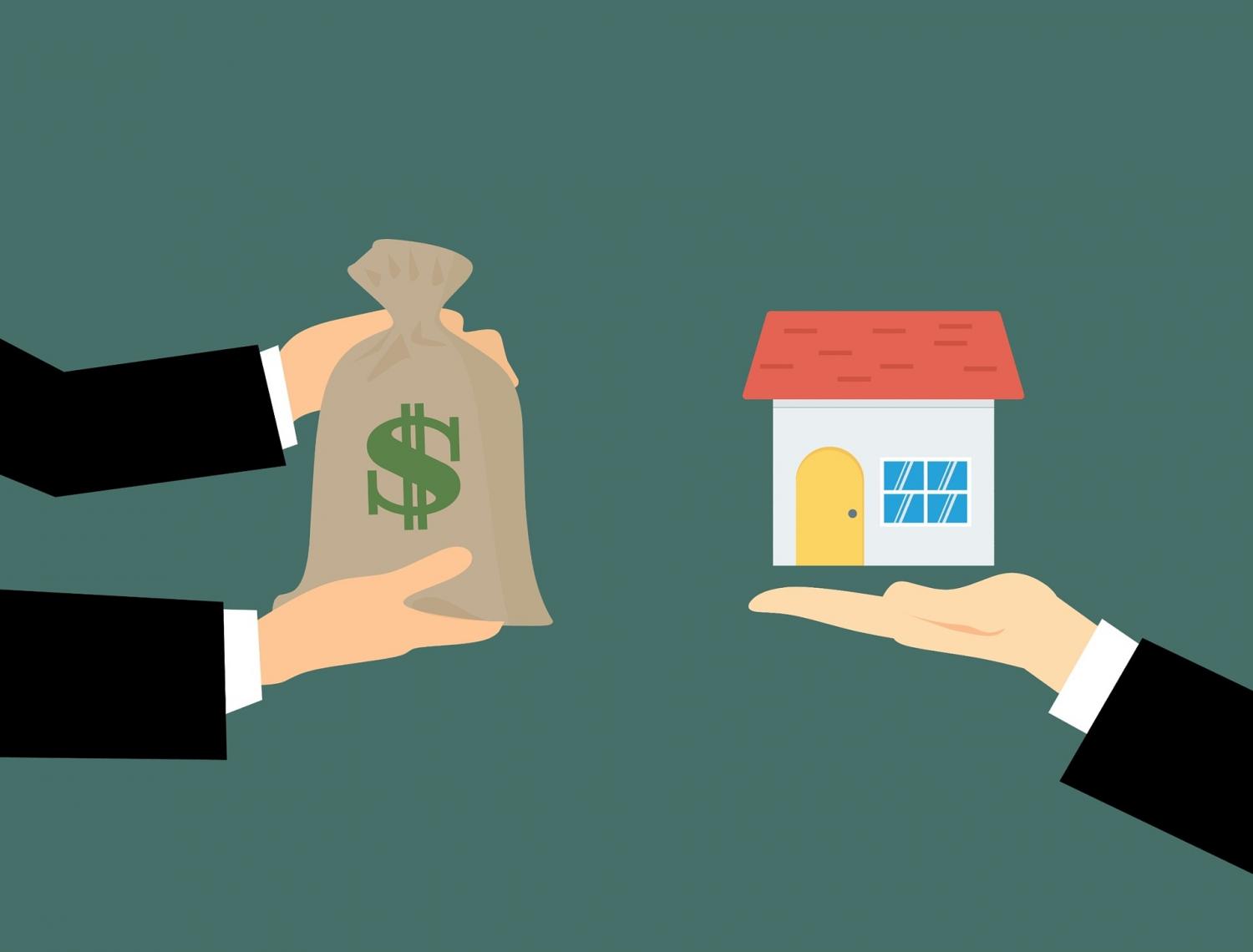
10 Things to Consider for Real Estate Investments in Ottawa
Are you considering investing in your first real estate deal? As an Ottawa resident, there are a few areas of the market that you need to be familiar with to get a good deal. Condos dot the Ottawa skyline and make particularly good investments for newbies to real estate.
However, diving into the deep end of the market is not a good idea. Successful real estate investments are made when you buy, not when you sell. Purchasing your first income property will require a fair bit of research and investigation. Here are ten tips you can use to help you in your search for the perfect real estate investment.
#1 You Need Help
What do you need to look for in an investment property? The industry has so many different options available for first-time investors that it may all seem a little overwhelming at first. You need to know what you are doing in the volatile real estate climate and working with a real estate broker will help you navigate the pitfalls of the market.
In real estate, return means everything. If you don’t know what to look for you could end up with a lemon and decimate not only your return but your capital as well. Being stuck with a house that has structural damage will cost you thousands to repair. Make sure that you work with professionals to ensure you get a fair deal.
Your team should consist of an attorney to handle the paperwork, an accountant to review the property records and finance, and a real estate agent to show you great deals in the local Ottawa market. If you don’t have any idea of where to start your search for your all-star team, check out online forums for recommendations.
#2 The 10:1 Rule
Once you have assembled your team, you will be ready to begin your search. This is where the rubber hits the road, quite literally. If you are expecting a great deal to fall into your lap, you will be disappointed. It takes time and patience to find a good deal, and while they may be a rare find, they are out there.
The golden rule of canvassing for property deals is to visit ten properties, refine the list to your top 3, and then make an offer on the best one. Therefore, if you want to make ten offers, you will need to view 100 properties. That kind of legwork takes time and effort, so be prepared to spend a few weeks to find your first deal.
If you feel a sense of distrust, or dissonance while you are viewing the property, it’s wise to trust your gut and walk away. If the deal does seem too good to be true, then it probably is. The point of the 10:1 Rule is not just to provide you with a guideline, but to show you that you will need to do some real prospecting if you want to find a great deal.
#3 Location, Location, Location
This prime property rule still stands true today. The location of your investment property will determine how much you can rent it for, what you can expect for an occupancy rate, and what kind of tenants you attract.
If you buy a building in the derelict part of downtown, you can expect to have to deal with delinquent tenants jumping their rent payments. Also, lower-income parts of the city tend to attract a lower class of tenant, that most likely will not take care of your new investment.
You should add a property manager or property management company to your team to assist you with handling any unforeseen tenant issues. A property manager will charge 10% of the annual rental income as their fee. However, they are well worth it, and some management companies guarantee your rental income, even if the tenant absconds from the property or stops paying rent.
#4 The Local Economy
The health of local small business is an important consideration for your first investment property purchase. You need to choose a location that has a growing job market with plenty of opportunities for employment. Take some time to scout locations in the city with your agent. Look for new developments and corporations moving into areas.
Where business and commerce set up, prime property rentals follow. Finding a diamond in the rough can be an incredibly profitable investment so make sure you include developing areas in your search. Purchasing a property next to the university campus is also a great investment. Students will always need housing, and thousands of them live off-campus.
Setting up a student rental is a great starter real estate investment and it’s easy to manage. Students take loans for their studies and their housing. This presents you with an opportunity to claim the entire annual rental fee upfront.
#5 How Much Rent Can You Charge?
The most important tip for new real estate investors is; watch the cash-flow. Cash-flow is king, and without it, your investment will die. Make sure you speak to your accountant before you sign the paperwork. Discuss the affordability of your new venture. Will you have enough capital to persist through a lull in occupancy or a delinquent tenant?
Your accountant can give you various scenarios where interest may rise and how this will affect your mortgage payment. The trick to obtaining a positive cash-flow right from the beginning is to buy right. Finding the right deal does not necessarily mean that you need to find a new condo with amazing fittings in a prime neighborhood.
This scenario may turn out to be a bad investment. If the mortgage costs exceed what you can charge for rent, then you will have a negative cash-flow that will need to draw money from somewhere to fill the shortfall.
However, if you find a bank repossessed property in a developing neighborhood, you may benefit from a low purchase price and make a positive cash-flow from the first month’s rent. If the district is under construction, you can be sure that rents will be raised shortly as the neighborhood is revamped. That’s why it’s so important to find a reliable company to help you find the best pre construction Toronto condos.
Buying right the first time will ensure your success as a property investor. Don’t become emotionally attached to the deal. Think of it purely as a business deal and take it based on the advice of your team and their financial predictions for future cash-flow. Some investors never even see their investment real estate, they rely on a positive cash-flow and leave it alone. That’s real passive income.
#6 Safety and Amenities of the Neighborhood
The best way to charge high rentals is to purchase a property that is close to amenities such as shopping malls and schools. These facilities are in high demand for families, and everyone wants to live closer to the store, right?
Check on the local crime statistics. The last thing you want is to purchase a property in a high crime area. Tenants will hesitate to move into unsafe neighborhoods and many that experience a dangerous situation will pack up and move shortly afterward.
Visit the local police station for stats on the neighborhood crime and ensure that you are not buying into an unsafe neighborhood.
#7 Bank Repossessions
Repos are a fantastic way to get your foot in the door as a real estate investor. People that can no longer afford their mortgage due to a cash-flow crisis may have their home repossessed by the bank. While this is an unfortunate situation, many families are relieved when the repossession goes through, and they are no longer responsible for the mortgage.
The bank will typically auction the home at a public auction, with the highest bidder taking home the deed. However, bank repos can also be risky investments. Sometimes tenants or owns decide to neglect the property or abuse it. There may even be hidden damage or unpaid liabilities such as an outstanding power bill. As the new owner of the property, you will be responsible for the settlement of any outstanding accounts with the property.
Make sure that you have a powerful team behind you if you choose to go with bank repossessions as your investment strategy; You will need their skills to assess the deal and carry out a thorough risk assessment before you commit your capital. However, if you do land a good bank repo deal, it could be the best investment you ever make.
#8 Finding Finance
Another vital rule to pay attention to in real estate investing is; never use your own money. Taking on debt may seem like a scary thing to do but as an investor. However, it’s an indispensable tool that you need to learn to use effectively.
There is a difference between good and bad debt. Bad debt is loaning money on your credit card to purchase lifestyle products and services. This consumes your credit line, and you will need to pay interest on your expenses, this makes little financial sense.
However, taking a loan from a financial institution to purchase real estate is a wise investment and productive use of debt, or capital. The bank will finance the deal, as long as you commit to repay the principal plus interest. As long as you hold onto your end of the deal, you can leverage the finances of the bank to make yourself an income.
Many banks will be pleased to loan you money if you meet the criteria of a sophisticated investor. You can stress test your mortgage to see if you qualify. As your real estate investment business grows, your bank will extend your credit lines and even assist you with restructuring your portfolio should you hit a snag along the way.
Speak to your accountant and make sure that you can afford the property before you purchase it. You don’t want to be on the wrong end of bank repossession.
#9 Appearance Matters
No-one wants to live in squalor. Don’t become a slum lord and purchase an investment that is run-down and falling apart. Look for added extras that homeowners have added to their homes. A trellis, awning, or garage port by Royal Covers will add value to the home, and many homeowners are unaware of the added value of their property.
When you purchase the property, take out an additional loan for maintenance and repairs around the property. If you create a hospitable living environment, then you can expect to attract a better quality tenant that is willing to pay more for a rental.
#10 Insurance and Taxes
You will need to ensure your new investment property. Fires, flooding, and natural disasters can wreck your investment if you do not have the right coverage. Speak to your real estate agent about the right cover for your property.
Make sure that the property taxes are up-to-date and paid in full. Some homeowners may leave them to lapse, and you will be stuck with the bill.
You will be running a business as a real estate investor. This means that you will be entitled to the same tax breaks and expense write-offs of any small business owner. Speak to your accountant to get an idea of what you write-off to increase your bottom line for the year can.
Wrapping Up
As a first-time real estate investor, you will be best suited to a single family home, or an apartment for your first deal. Condos and apartments are low maintenance and self-contained. They are usually managed by a body corporate and will ensure that your property is always kept well. However, be careful with high levees that may eat into your cash-flow. Ask to see the buildings financial statements and have your accountant assess the risk involved with investing in the building.
Be prepared to put the work in for canvassing deals, build a good team of advisors around you, and you will succeed. Securing hard assets in your investment portfolio will create real wealth for your family and build a legacy. Good luck with your investments and may all your deals be profitable.













